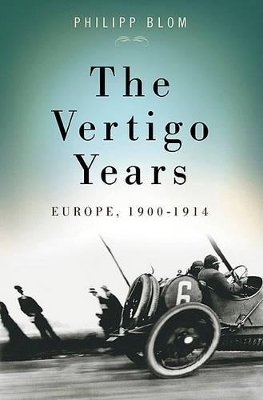Europe, early in the twentieth century: a world adrift, a pulsating era of creativity and contradictions. The hot topics of the day - terrorism and globalisation, immigration, consumerism, the lack of moral values and rivalling superpowers - could make one forget that it is a century ago that this era vanished in the trenches of the Somme, of Ypres, and of Passchendaele. Or did it? The closer one looks, the more this world seems like ours: feminism and quantum thedory, atonal music and democratisation, mass communication and commercial branding, genetics, state-sponsored genocide, colonialism, consumerism and racism, radioactivity and psychoanalysis are all terms first used during this period. This was a time radically unlike the Victorian era that preceded it, a time in which old certainties broke down and many people lost their bearings.
At the heart of this vibrant Europe, was a contradiction that would cause its collapse: the new, modern world of mass production, urban life, technological warfare and a rapidly growing working class was still ruled by men - Kaiser Wilhelm, Tsar Nicolas II, and the Austro-Hungarian Emperor Francis Joseph among them - who thought in the chivalric and paternalistic categories of earlier generations, prefering the image of dashing cavalry officers to the prosaic slaughter of the machine gun, and national mythology to political cohesion and democracy. The eventual scope of the catastrophe often obscures the fact that the great cultural divide in Europe's history lies before 1914. This book will bring to life the immediacy of the lives and issues of this fascinating and flawed period.
- ISBN10 0465011160
- ISBN13 9780465011162
- Publish Date 30 September 2008 (first published 28 August 2008)
- Publish Status Unknown
- Publish Country US
- Imprint Basic Books (AZ)
- Format Hardcover
- Pages 488
- Language English
